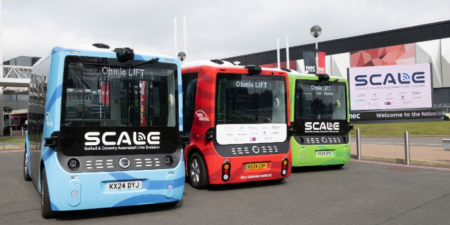PTV Group, part of Umovity, has unveiled Vissim Automotive – a new edition of its traffic simulation software, specifically designed for the automotive sector, offering a range of new functionalities to build a responsive digital testing environment for all vehicle types.
PTV Vissim Automotive builds on the firm’s microscopic traffic simulation software PTV Vissim, which has been a trusted development tool in automotive engineering for many years. PTV Vissim can integrate realistic traffic scenarios into virtual test environments to optimize, for example, the range of EVs during powertrain development.
PTV Vissim Automotive now offers a new set of functionalities, making microscopic traffic simulation in automotive development easier, faster, and applicable to new use cases, according to the company. The software provides a dynamic closed-loop test environment with realistic, reactive, and behavior-model-based surrounding traffic.
Traffic scenarios evolve dynamically based on the interactions among road users (cars, cyclists, pedestrians, public transport, etc.) and the traffic network, enabling long test drives and exploratory testing without the need to predefine specific scenarios.
This virtual test environment can simulate realistic traffic situations, such as urban rush hour with frequent acceleration and braking, or highway journeys with on- and off-ramps at challenging interchanges. The stochastic nature of the simulation allows for testing an infinite number of variants from the same initial situation or repeating specific, particularly relevant simulation sequences.
The wide variety of traffic situations in the simulation significantly enhances the relevance of the tests compared to standard cycles or fixed scenarios. Even AI-supported scenario mining based on simulated traffic flow is possible.
Additional features
According to PTV, intelligent automation and presets simplify and accelerate the use of Vissim Automotive. The software offers a range of intelligent presets for the driving behavior of surrounding traffic, enabling quick selection and setup. The intensity of the test environment can be adjusted with different driving styles, ranging from comfort-oriented to aggressive.
In aggressive traffic scenarios, for example, there are closer cut-in maneuvers, posing a challenge for the vehicle under test and its automated driving functions. A new traffic generation wizard can instantly transform an empty network into a bustling traffic environment with surrounding traffic and route decisions, which can then be easily adjusted for varying traffic densities.
Furthermore, to reproduce the driving behavior for advanced driver assistance systems (ADAS) and automated driving (AD) as realistically as possible, Vissim Automotive has enhanced its standard following model, which reflects human behavior in road traffic, with a newly developed behavior model for automated vehicles with specific behaviors for longitudinal and lateral guidance.
Vissim Automotive also offers interfaces to the most important industry solutions such as IPG CarMaker, dSpace ASM, Hexagon Virtual Test Drive or MathWorks Simulink enabling comprehensive co-simulations. The software supports OpenDRIVE network imports up to the latest version 1.8, thanks to a significantly improved import function.
Additionally, a newly developed importer for external elevation data allows for easy integration of elevation and gradient information into the traffic network, enabling accurate driving resistance simulations.
“In today’s automotive landscape, simulation is an indispensable tool for developing safe, efficient and future-proof vehicles,” said Christian U Haas, CEO of PTV Group, part of Umovity. “We’re thrilled to provide our customers with an even more powerful and specialized simulation solution. PTV Vissim Automotive is specifically designed to address the industry’s evolving needs, from optimizing alternative powertrain performance to rigorously testing the safety of automated driving functionalities.”





